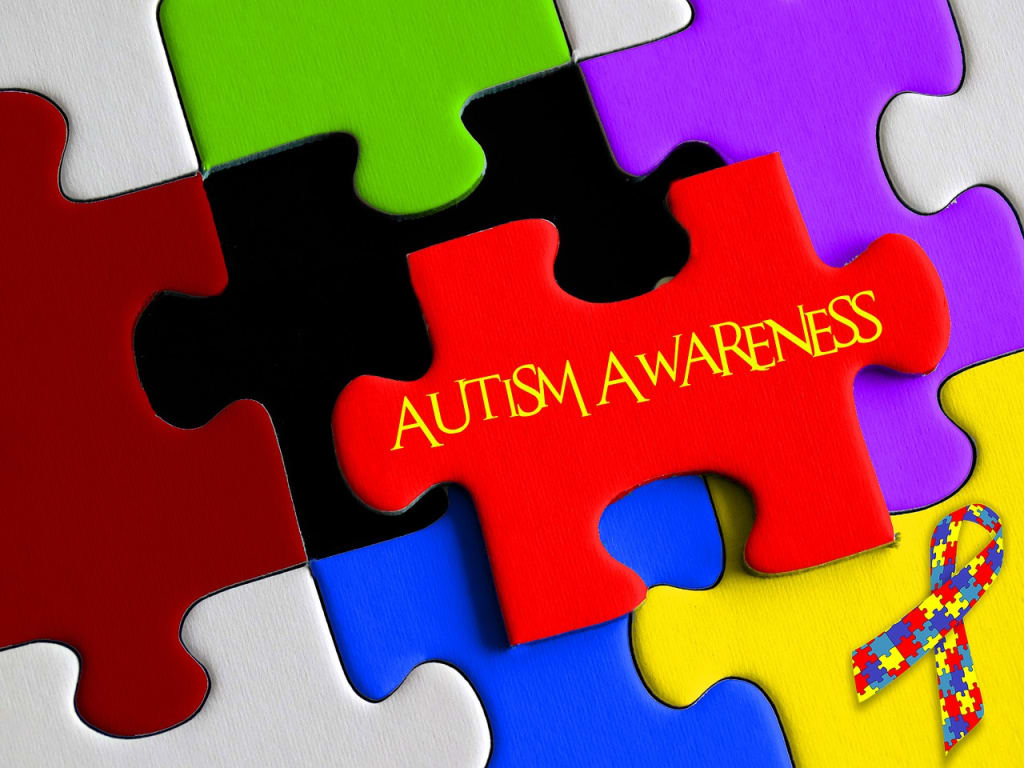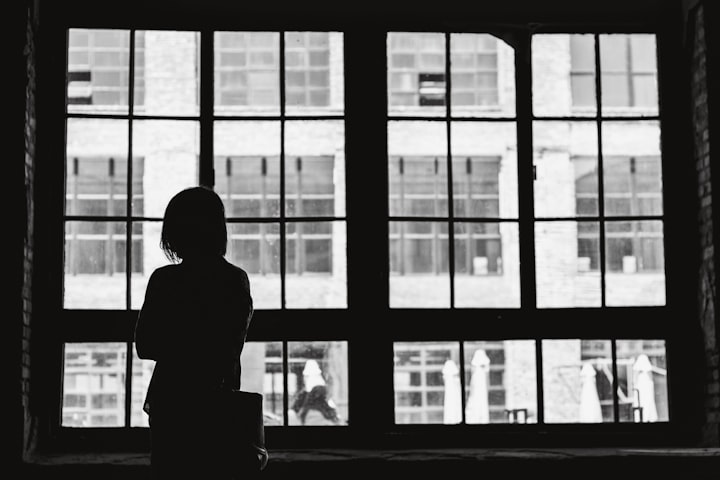Girls, Autism, and Late Diagnosis
Different?... Yes. A bad thing?... No.

Having a child with mild autism doesn't seem strange to me. It is just the way my daughter happens to be. The way she thinks and the ways and responds to stimuli are what make her HER.
She was not diagnosed until she turned twelve this October. This is much later than most autistic children receive diagnoses, and was partly because the mildness of her autism meant that it was less noticeable than in many people with autism. I think there are other reasons too, though.
Girls with autism tend to present with the disorder differently from boys. Most studies into autistic spectrum disorders have been carried out by looking at boys — so it is hardly surprising that there are girls with ASD who slip through the diagnosis net. I am a long way from being an expert in the field, but — speaking from the experience of raising my daughter for twelve years — I have been helped to make sense of a lot of her behaviour by having this diagnosis and by researching the various articles about ASD that are out there.
Like almost everyone else, I used to think of autism as meaning that the person would act disruptively a lot of the time — lots of shouting out and reactions that look like tantrums. This isn't necessarily the way autism shows itself in the person, however, and is apparently much less common in girls than it is in boys. Girls with autism tend to behave passively instead and avoid activities in order to control their world instead. They are also more likely to imitate the behaviour of non-autistic people around them — which is a very good reason for the true differences between them and their 'normal' peers not being spotted for a very long time. Girls will often at least appear to want to interact socially, even if they are not always successful at it.
My own daughter, now that I have learned more about it, shows lots of the female autism traits [here is a link to a useful article about it]. Reading this article, it is obvious in hindsight that this has been the reason she has always been a little bit 'different.'
For one thing, she would not talk until she was three and a half. Until that time she occasionally said a word — perhaps one word every three months — and would not repeat it. She did not even acknowledge that she had said a word or that she had received praise for having said it. It was as if the word had slipped out by accident. She showed no interest in communicating with others, either. She didn't sign. She only pointed at things sometimes. She would cry when she didn't get what she wanted but didn't understand that we couldn't discover what she wanted unless she told us somehow. Soothing her was a process of elimination.
When she began to talk, the words came thick and fast. My worries eased, her language tests in school aged five showed her skills were very good, and she seemed to play fairly well with the other children. It seemed that the elective mutism was just one of those things that would never be explained. The years went by and she continued to do well in school. She was quiet and had just a few friends, but not everybody is loud and wants attention. That was no big deal.
But as time went on, she wasn't able to keep up with the growing complexity of her social relationships. A joke would be told and she would ask me if it was funny and what made it funny. Then she would make up her own joke, following the rule — a play on words or whatever it happened to be. She would tell the joke and again ask if it was funny and in all seriousness ask me to explain to her what made her joke funny. She wanted to join in with the world of humour that everyone else enjoyed but she wasn't sure if she had understood the rules. She was copying and hiding how she was different.
Her voice was monotone and her face usually quite expressionless, unless she was showing an extreme emotion. On those occasions she appeared to be exaggerating. Something which made others turn their heads to look or maybe jump slightly would make her leap almost out of her skin and scream, even cry.
Loud noises upset her; unexpected noises in particular, but any kind of noise, such as disco music, as well. Add flashing disco lights to the scenario and she would have to leave the room, clutching her hands to her ears.
If something was going to happen that she didn't want to happen, she would protest in a repetitive manner. The most reasonable explanations for why something out of routine was taking place fell on deaf ears. She was compliant in school and appeared to be able to concentrate in class, but it became clear that she was not able to compromise with other children and was entirely unable to see a situation from someone else's perspective — or even why it could be a good thing to see it from their point of view.
In the end, there were enough small symptoms to make me and her school think that something needed to be investigated. One or two traits can be found in many people. There is a school of thought that believes ALL of us belong somewhere on the autistic spectrum to some degree. She was starting to experience more difficulties as she got older, though, and I was fearful of where it was going to lead.
It took a long time to go through all the agencies—about fourteen months from start to finish—but the professionals involved were all fantastic. Their knowledge and experience made all the difference.
My daughter is always going to be autistic. That is the fact of the matter. But while it can be difficult for her to be different, it could also be the making of her. She is high functioning. She can rattle off the names of almost all the countries in the world and identify most of them on a map. She can draw faces and figures brilliantly for her age.
We live in a world which expects its people to conform and follow the rules. Look at the tiny minority of people who've made a real, positive difference to our world, though... those people who have dared to see things differently: I bet many of them were or are autistic. I wouldn't change my daughter for anything.
About the Creator
Deanne Adams
I love stories. Stories which make me laugh, cry, wince or get angry. Stories which make me care. Most of all, I love helping others tell stories that captivate. Reach me at bestbookyoucan.com or follow me on Facebook.






Comments
There are no comments for this story
Be the first to respond and start the conversation.